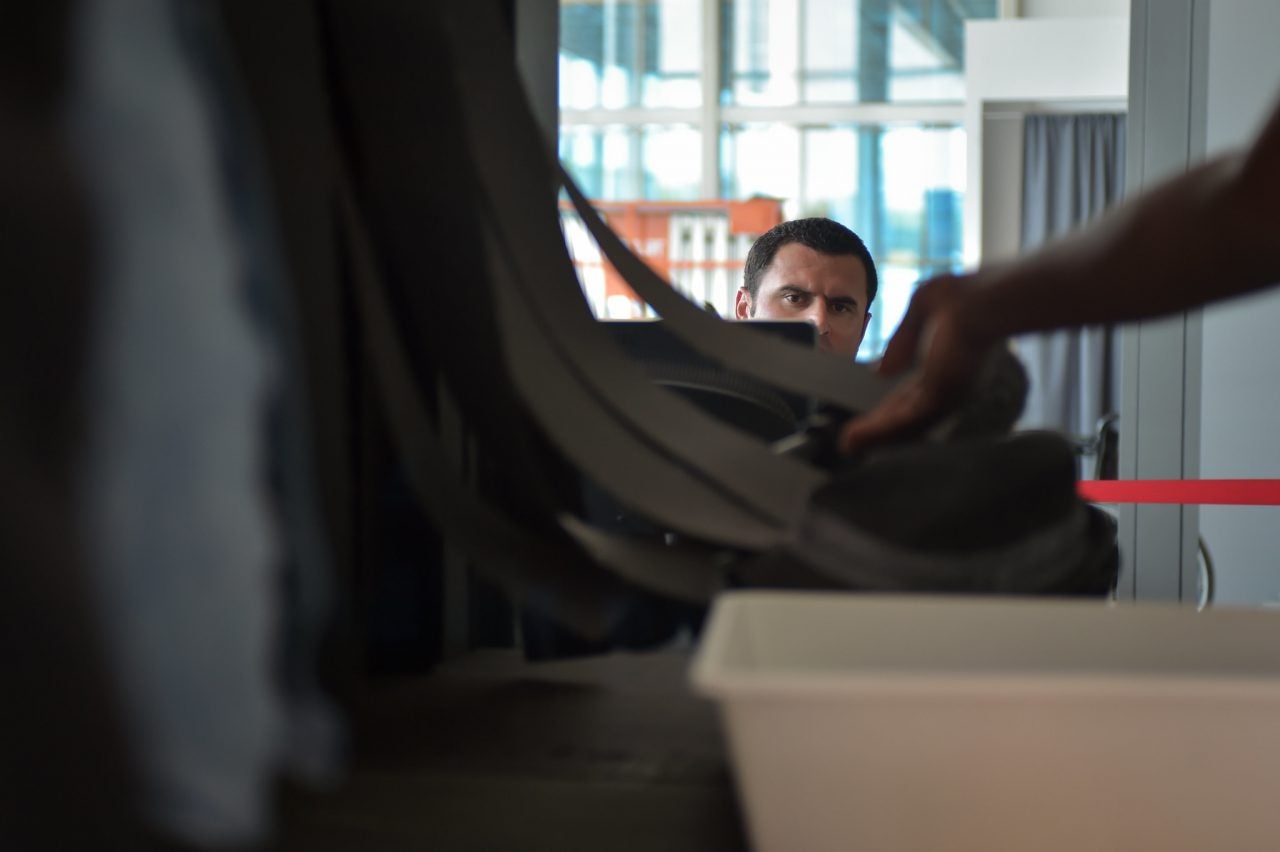
The Japanese Government has recently introduced a bill for the revision of the country’s aviation law, establishing for the first time official guidelines for the handling of airport security checks.
Formulated to prevent incidents related to terrorism and hijacking, the ‘Basic Policy for the Prevention of Harmful Acts’ will clarify roles and foster the cooperation between the government, airports and airlines. The bill will also aim to improve the quality and quantity of security inspections.

Discover B2B Marketing That Performs
Combine business intelligence and editorial excellence to reach engaged professionals across 36 leading media platforms.
This new policy is set to shake things up, as Japan has always relied on airlines to carry out airport security inspections, usually outsourcing it to private security firms.
To be implemented at the beginning of next year, the new law will strengthen the existing aviation security measures, such as making it mandatory for passengers to undergo security inspections or staff to issue instructions.
Experts believe that at the passenger level things will not change, but it will help the industry avoid incidents such as what happened in Osaka in 2019, when a knife found in a passenger carry-on luggage was allowed through security.
While the model employed until now by Japan was considered unique, what are other countries doing in terms of airport security checks?

US Tariffs are shifting - will you react or anticipate?
Don’t let policy changes catch you off guard. Stay proactive with real-time data and expert analysis.
By GlobalData
American airlines
As previously reported, while it’s true that the concept of airport security checks evolved over decades, 9/11 represented a watershed moment all around the world. In the US, that fateful day led to the creation of the Transportation Security Administration (TSA) – a US government agency dedicated to airport security.
Post 9/11 airport security checks saw the incorporation of different measures, including the screening of carry-ons, reporting of unattended packages and pat-down procedures. The “See Something, Say Something” motto – which asks citizens to report suspicious activity – was also created.
As reported by the TSA, before the Covid-19 pandemic agents would screen 4.9 million carry-on bags daily, making sure that travellers had removed liquid gels and, at a certain point, personal electronic devices. The number of hold luggage checked every day amounted to 1.4 million.
Millimetre wave imaging is another technology that the TSA and airport security providers around the world use because it replaces pat-down techniques allowing for no physical contact.
To maintain high security levels, the TSA has also introduced a pre-screening programme that aims to identify low and high-risk passengers, by checking against travellers’ watchlists.
Human rights groups have condemned the methods used by the TSA multiple times. According to an article published by ProPublica in 2019, body scanners were found more prone to false alarms when black women or people that wore turban and wigs passed through them, forcing them to undergo intrusive search methods.
The EU
Tightened rules for airport security in the European Union were established post 9/11, when the European Commission outlined the common rules and basic standard for all civil airports in the Union.
Basic standards included screening of passengers and hold luggage, as well as airport security and aircraft security checks.
According to the bill, member states needed to designate a single authority competent for aviation security, as well as set up a national civil aviation security and quality control programme. On the other side, operators should implement both airports’ security and air carrier’s security programmes.
The bill was updated a few times, with regulations supplementing initial protocols, adding guidelines on the transport of liquids, the use of security scanners and the adoption of alternative security measures.
With the advent of the Covid-19 pandemic, airport security had to adapt. In June 2020, the European Union Aviation Safety Agency (EASA) published guidelines on health and safety protocols to adopt in European airports.
To protect both staff and passengers, EASA recommended operators to appoint a coordinator to ensure that Covid-19 measure would be applied uniformly by all stakeholders.
Emphasis was also posed on implementing social distancing measures, such as enhanced hygiene protocols and implementing physical distancing.
Israel
Considered the safest airport in the world, Tel Aviv’s Ben Gurion Airport has become an example in terms of airport security.
As reported by the CNN, security procedures begin at the Airport Operations Centre, which monitors every aircraft coming into Israeli airspace, checking each passenger and cabin crew member.
At Ben Gurion, things differ when travellers fly out of the country, as the level of scrutiny is higher than most hubs in the world. The measures implemented by Israeli airport security include checkpoints for vehicles and interrogation of passengers.
The last measure, which take place before scanning travellers’ bags, is justified by officials by the country’s geo-political position which they believe makes it more prone to potential threats.
“A terrorist attack at an airport is more than an attack, it’s a hit on the reputation of the entire country,” told Israel Airport Authority former security chief Pinni Schiff told the Christian Science Monitor in 2016.
Over the years, the security methods that Israel implements at its airports have raised more than a few eyebrows as they have often been accused of racial profiling, especially towards the Arab and Palestinian travellers passing through.
In 2016, human rights organisation Adalah denounced that the techniques implemented at Israeli airports, including strip searches and alleged targeting of Arab passengers, were illegal.
“The Flight Law (Security in Civil Aviation) does not authorize Israeli airline security personnel to ask passengers to strip naked and to conduct searches or to escort them to the boarding gates,” wrote Adalah lawyer Fady Khoury in a letter to General Attorney Avichai Mandelblit and the Israel Airports Authority.





